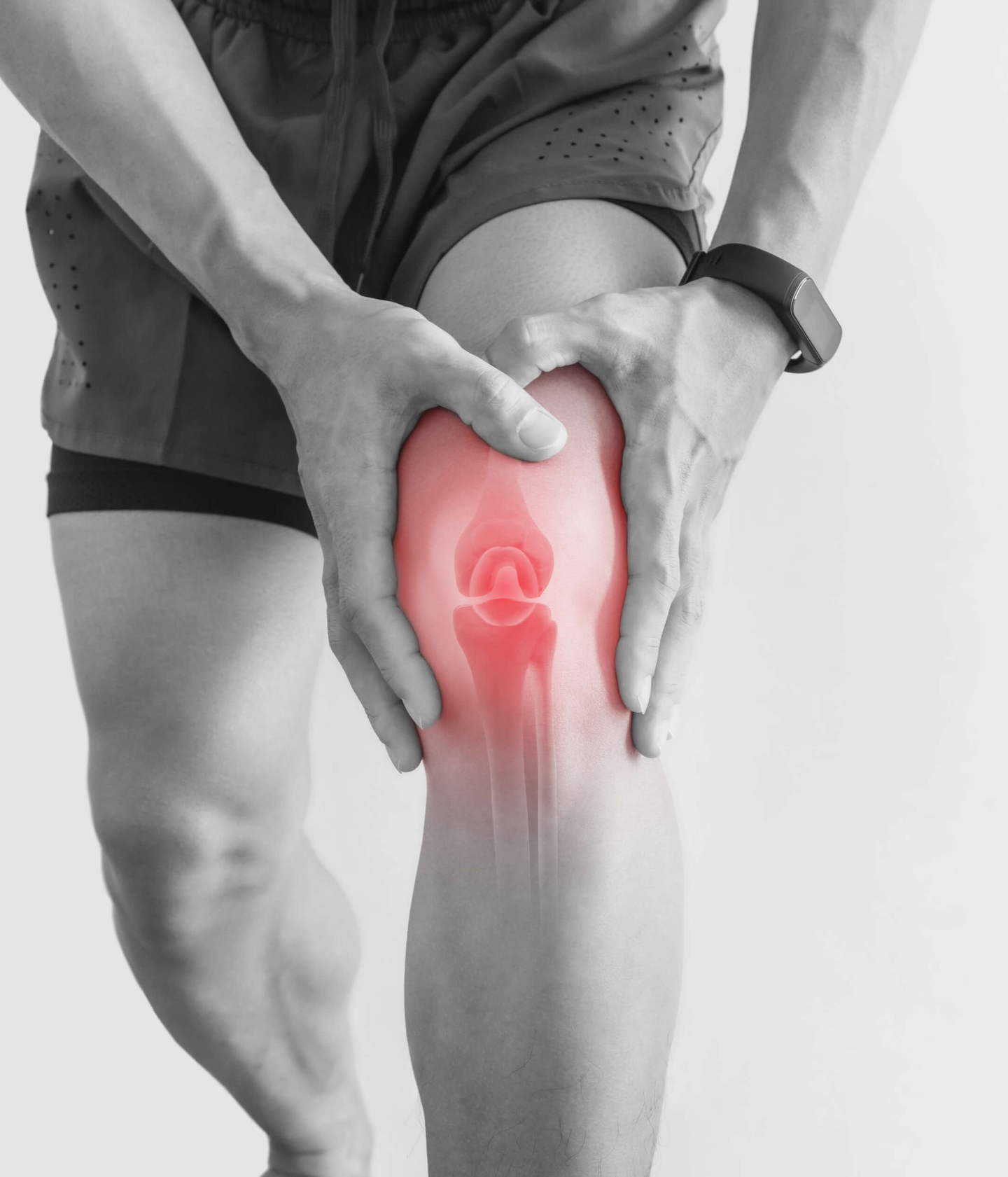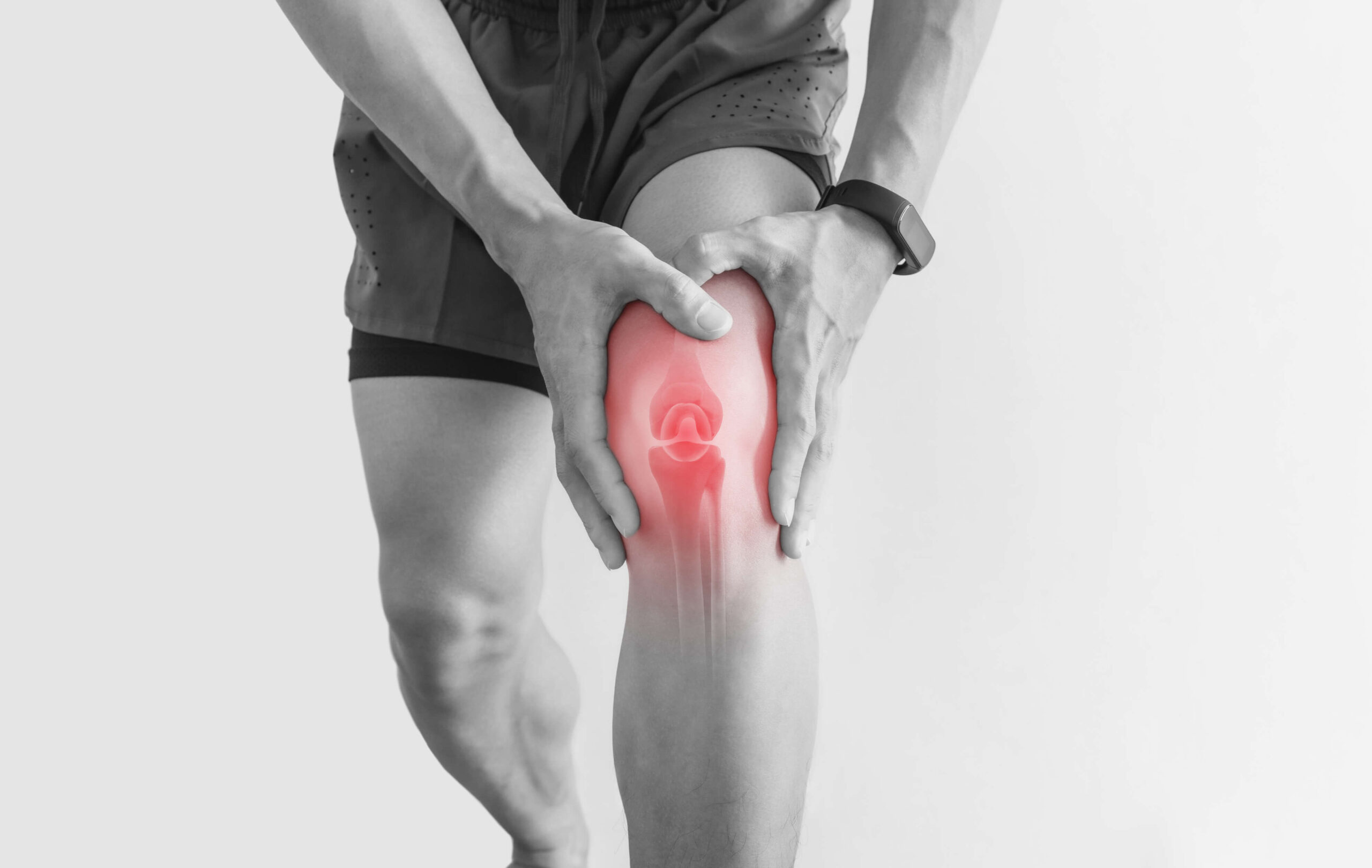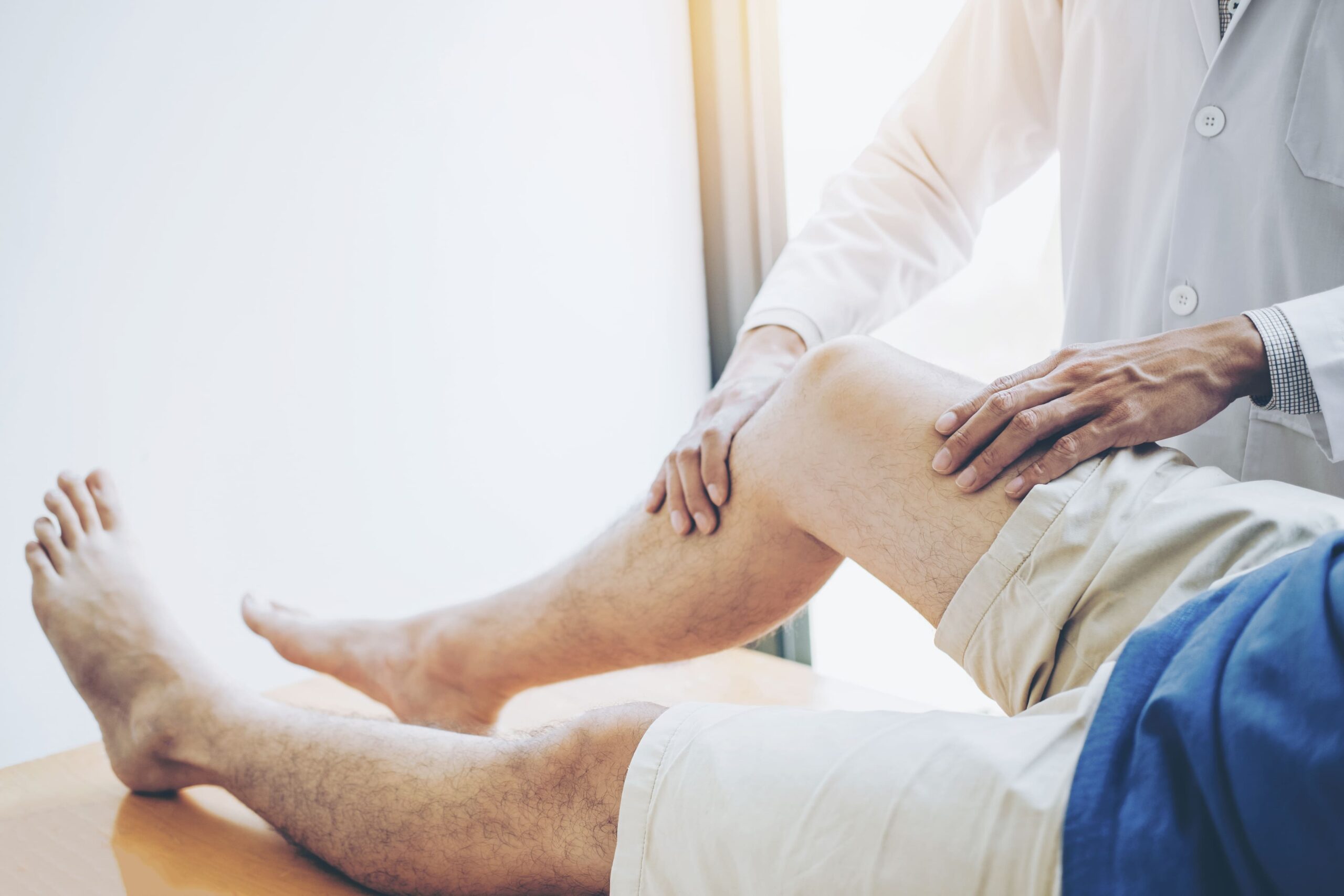Kneecap Dislocation Specialist In Singapore

Dr Wang Lushun
Senior Consultant Orthopaedic Surgeon
MBBS (Singapore)
MRCS (Edin)
MMed (Ortho)
FRCS (Ortho) (Edin)
- Get back to your active lifestyle through kneecap dislocation treatment
- Fellowship-trained orthopaedic surgeon
- Internationally recognised, more than 1500 surgeries performed



What is Kneecap Dislocation?
Kneecap dislocation, or patellar dislocation, happens when the kneecap (patella) slips out of its normal position. It’s a common injury experienced by active individuals and athletes and can be a symptom of other knee conditions like patellofemoral pain syndrome and trochlear dysplasia (abnormal shape of bone).
Proper and immediate treatment can prevent the following:
- Risk of future dislocations, which could further damage the knee joint
- Development of chronic knee pain and kneecap instability, which can affect daily activities and overall quality of life
- Weakened muscles and ligaments, making it harder to support the knee and avoid injuries
- Development of accelerated arthritis from repeated dislocations and injury to the knee.
Symptoms Of A Dislocated Kneecap
A dislocated kneecap can be quite painful and may cause a variety of symptoms. It’s important to recognize the following symptoms and seek immediate medical attention:
Intense knee pain
This occurs because the patella is out of position, leading to strain on the surrounding tissues and ligaments.
Swelling and inflammation
A dislocated kneecap causes bleeding and fluid buildup, which results in knee swelling and inflammation.
Visible deformity
A dislocated kneecap may visibly look out of place or misaligned, causing a noticeable change in the knee's appearance.
Limited range of motion
Movement of the affected knee may be restricted due to pain, swelling, or the dislocation itself.
Regain your knee’s strength and mobility
while minimizing the risk of long-term complications.
while minimizing the risk of long-term complications.
After experiencing a kneecap dislocation, it's essential to follow a proper course of action to ensure a safe and effective recovery.


Am I A Candidate for Kneecap Dislocation Surgery?
Surgery can be an effective solution in certain cases, but it’s essential to consult with your orthopaedic specialist to determine the best course of action. Some factors considered by kneecap dislocation specialists include:
- Recurrent dislocations: If you’ve suffered multiple dislocations despite conservative treatments, surgery may be recommended to address the underlying issues and prevent future dislocations.
- Level of damage to the knee joint: Surgery might be necessary if the dislocation has resulted in extensive damage to the ligaments, cartilage, or joint surfaces, which cannot be addressed through non-surgical means.
- Unsuccessful conservative treatment: If conservative treatments like immobilization, physical therapy, and pain management have not provided satisfactory results, your specialist may consider surgery as the next step.
- High activity level or sports participation: Athletes and individuals with a high activity level may benefit from surgical intervention to restore knee stability and prevent further injuries that could result from recurrent dislocations.
How is a kneecap dislocation diagnosed?
A kneecap dislocation is typically diagnosed through a physical examination, during which a healthcare professional assesses the knee’s appearance, mobility, and stability. Imaging tests like X-rays, MRIs, or CT scans may also be used to confirm the diagnosis and evaluate the extent of the injury.
What is the immediate treatment for a dislocated kneecap?
The initial treatment for a dislocated kneecap usually involves reducing the dislocation, which means gently moving the kneecap back into its proper position. This should be done by a trained medical professional to avoid further injury. Once the kneecap is back in place, your healthcare provider may immobilize the knee with a brace or splint to facilitate healing.


Dr Wang Lushun
Senior Consultant Orthopaedic Surgeon
MBBS (Singapore)
MRCS (Edin)
MMed (Ortho)
FRCS (Ortho) (Edin)
Internationally Recognised & Double Fellowship-Trained Surgeon With Over 18 Years of Experience
- Bachelor of Medicine & Bachelor of Surgery (MBBS),
National University of Singapore - Member of The Royal College of Surgeons (MRCS),
Edinburgh, United Kingdom - Master of Medicine in Orthopaedic Surgery (MMed),
National University of Singapore - Fellow of The Royal College of Surgeons in Orthopaedics and Traumatology (FRCS), Edinburgh, United Kingdom
As a Senior Consultant Orthopaedic Surgeon and former Head of the Hip and Knee Division in Ng Teng Fong Hospital, he has won awards for superior patient outcomes (value driven), service quality and enhanced recovery programmes. His patients include current and former national athletes and sporting professionals.
Why Choose
Dr Wang Lushun?
Trusted
Leadership on Orthopaedic Advisory Boards
Skilful
Double Fellowships at Centres of Excellence
Experienced
Senior Consultant with Over 18 Years of Experience
Patient-Centred Orthopaedic Care
We are dedicated to your recovery and well-being. Every patient deserves the freedom that comes with active living. Whether you're an athlete sidelined by an injury or a weekend hobbyist desperate to return to your passion, our mission is to help you regain your mobility and independence.
Personalised Approach For Positive Outcomes
Our clinic prioritizes time dedicated to understanding each patient’s injuries and needs. Dr Wang strongly believes that personalised care & patient management will lead to better outcomes & positive experiences.
Minimally Invasive Techniques For Faster Recovery
Dr Wang’s extensive experience with minimally invasive procedures allows for less scarring, lower risk of complications and faster recovery compared to traditional surgical methods.
Aftercare Focused On Restoring Mobility & Well-Being
As an avid sportsperson, Dr Wang understands the time and patience required to regain mobility and return to active living. After your procedure is completed, Dr Wang will make sure your recovery is smooth and comfortable.
Insurance
We accept all patients, with or without insurance plans. Additionally, we are on the specialist panels of these Health Networks/Insurance Plans. Please contact us if you have any queries and we will be happy to assist you in checking with your insurance provider.
Our Clinic Locations
3 Mount Elizabeth, #13-14
Mount Elizabeth Medical Centre
Singapore 228510
820 Thomson Road, Mount Alvernia Hospital, #05-51, Medical Centre D, Singapore 574623
Frequently Asked Questions
What surgery is required for knee cap dislocations?
Typically performed with minimally invasive techniques and sometimes with keyhole arthroscopy, surgery may be required to repair or reconstruct the tissues that are important in stabilizing the kneecap. Surgery may also be required in kneecap dislocations to repair or remove cartilage or bony fragments (osteochondral fragments) damaged during the injury.
Can I treat kneecap dislocation at home?
You need to consult a healthcare professional for proper diagnosis and treatment of kneecap dislocation. Attempting to treat it at home without proper guidance may lead to further complications, increased pain, and prolonged recovery time.
Is surgery always required for knee cap dislocation?
Not all kneecap dislocations require surgery. Many cases can be managed with conservative treatment, such as immobilization, physical therapy, and pain management. However, surgery may be recommended for severe dislocations with associated cartilage injuries or recurrent cases to stabilize the joint and prevent future dislocations.
Can I prevent kneecap dislocations?
While some dislocations are unavoidable due to accidents or genetic factors, you can take steps to reduce the risk. Strengthening the muscles around the knee, improving flexibility, and maintaining a healthy weight can all help to prevent kneecap dislocations.
Will I need to wear a brace after a knee cap dislocation?
A knee brace may be recommended to provide support and stability during the initial recovery period following a kneecap dislocation. The duration of brace use will depend on your individual progress and your healthcare provider’s recommendations.
Can I return to sports after a knee cap dislocation?
Yes, most people can return to sports and physical activities after recovering from a kneecap dislocation. It’s essential to follow your healthcare provider’s guidance on when to resume activities and any necessary precautions to prevent re-injury.